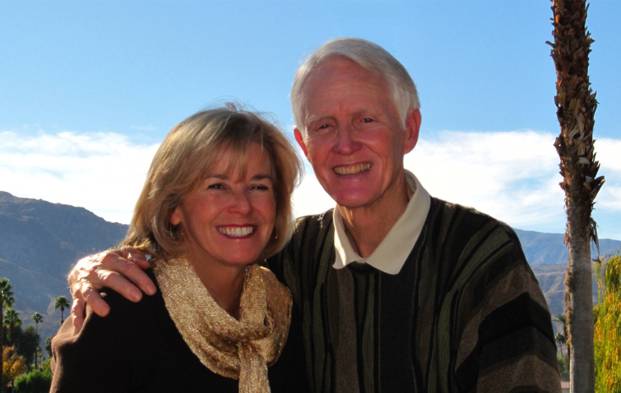
Ch-3: Develop Your Higher Self:
The part that loves you unconditionally
Part 2
Tom G. Stevens PhDPsychologist/Professor Emeritus, California State University, Long Beach
Send Feedback/Questions to: Tom.Stevens@csulb.edu
You Can Choose To Be Happy:
Site dedicated to enhancing human happiness, self-development, and success
Go to: Choose To Be Happy Checklist
SITE MAP: All free Self-help resources includes online book, You Can Choose To Be Happy, and SHAQ

|
|||
| search engine by freefind |
Go to Happy Homepage
Go to book contents Go to chapter contents
How can you know what will really make your happy?
Many people eventually choose health- and happiness-enhancing beliefs over more destructive ones. Why do they suddenly make those choices after years of not making them? Why is it that some people continue to choose the destructive beliefs? I will examine three different types of mind systems as potential guides for making decisions--(1) pleasure and pain (from the lower brain centers), (2) reason and emotion (from the cognitive system), and (3) empathy and love (from the Higher Self).
Even though our bodies and minds have amazing powers--those powers do
not guarantee that we will find--or even consciously seek--health and happiness.
I will discuss two types of limits--the limits on the pleasure principle and the limits
on the cognitive system. How could the Higher Self overcome these limits?
PLEASURE AND PAIN AS DECISION GUIDES
We have seen how pleasure is different from happiness, yet we often use pleasure and pain as decision guides in everyday affairs. Let's examine pleasure and pain as decision guides.
Pleasure provides valuable feedback about bodily needs, but is limited as a decision guide. Pleasure and pain are potent messages our lower brain centers use to tell us about our bodily needs. They tell us when our cells need water, food, heat, cold, oxygen, stimulation, and the like. If we ignore these messages, we will undermine our own health and ultimately our happiness. It is important to listen to our bodies. Feeling pleasure and avoiding pain are important ways we can increase our health and happiness.
However, as Freud and many philosophers have pointed out, living strictly by the pleasure principle--getting the most pleasure you can from the present moment--is shortsighted. In the long run, ironically, it usually leads to a life filled with pain. We know that if we spend all our resources for pleasure now, we may not have any left for pleasure tomorrow.
Freud contrasted the pleasure principle with the reality principle. The reality principle is understanding that to maximize pleasure over a longer period of time, it is often wise to undergo some pain in the short run. Many college students sacrifice their time and endure poverty in order to have a happier career and life later. We are all familiar with these ideas. So is our cognitive system. Most philosophers and religions view the ability to delay gratification (when wise) as an important way that we can increase our overall happiness for self and others.
REASON AND EMOTION AS DECISION GUIDES
Our cognitive system surely evolved because creatures living by the reality principle had survival advantages over those living only by the pleasure principle. A central function of the cognitive system is to look at the external and internal environments from a broader perspective. The cognitive system provided intelligence to store food for times of famine, suffer hardship in order to build a home for protection, and give up some individual freedom for group security. In the long-run pleasure will probably be increased. The emotions--not the pleasures--tell how our cognitive system is doing. If our cognitive system believes that all our concerns will be met, then it will be happy.
The cognitive system and emotions simultaneously monitor many concerns. The cognitive system cannot help but care about the future and care about all its subparts' desires. By "design," the only way that our cognitive system can have harmony within itself is by having adequate plans for what it believes will happen in the future. Our cognitive system is biologically "wired" to produce anxiety when it is uncertain about need satisfaction in the future. Our happiness directly reflects harmony within the cognitive system, we cannot be happy unless we have adequate plans for meeting our perceived future needs and values.
It is impossible for anyone living exclusively by the pleasure principle to be happy for long! The short-sighted hedonist may feel a lot of pleasure now, but part of him is constantly worried about the future. Many people with addictions live by hedonism. They focus on pleasure today; but eat, drink, or take drugs to avoid worrying about the future. The cost is nagging guilt and worry. Instead of facing their problems, they take more drugs to cover up the guilt and worry. They become trapped in a downward cycle toward self-destruction.
Enlightened self-love--happiness is more important than pleasure. Enlightened self-love means that we are trying to maximize our happiness instead of our pleasure. Pleasure often contributes to happiness, but not always. If we believe we are having fun at the expense of our career or health, or at the expense of others, we will feel guilty. We cannot be fully happy now if we believe that we are undermining our own future happiness or the happiness of other people.
Limits on the cognitive system's ability to assure health and happiness. The cognitive system also has limits. Just as listening strictly to our pleasures can get us into trouble, so can listening strictly to our reason or to our emotions (both are cognitive-related functions). Our emotions are dependent upon our values and beliefs. Therefore, if our values or beliefs are dysfunctional, then we cannot trust the thoughts or emotions erupting from them.
Beliefs and goals can undermine or empower natural unconscious forces. With all these good biological mechanisms built into humans to enhance our health and happiness, why do we do such dumb things that constantly undermine our health and happiness? Why do we smoke, take drugs, hurt people, or live for today without considering the future?
A worm is too stupid to take drugs or to commit suicide. It is not able to form a conscious goal to destroy itself. It is not capable of creating nuclear weapons of mass destruction--only humans can do that. Our cognitive system is a source of tremendous power not only to do great good, but also the power to do great harm.
Biological development of the cognitive system has given it power and freedom to create all types of beliefs, images, and thoughts. The cognitive system has a built-in irony. Evolution developed the brain's power and freedom for its adaption and survival advantages. Yet, that same power and freedom allow humans to learn destructive beliefs and goals that can undermine the health and happiness of the entire person, group, or human race.
It is possible to learn belief systems that become so independent and powerful in themselves that they work for our ultimate self-destruction. These dysfunctional belief systems do not believe they are working for our self-destruction, they believe they are working for our well-being--that is where they get their power! They get their power from reinforcement. Persons who take drugs or commit suicide often do so to cope with immediate problems. The immediate goal is to feel better right now or eliminate pain. However, these solutions have long-term negative consequences that do not lead to the person's best health and happiness.
Choosing to make long-range health and happiness our top goal is essential to maximize our chances for achieving health and happiness. Whenever we forget those goals and let a less functional goal rule, then we accidentally undermine our health and happiness. This miscalculation is the cause of most self-destructive behavior.
The executive self is president of our life and personality. The executive self (like part of Freud's ego) is a cognitive system that is in charge of our personality and life. Our executive self makes important decisions and plans. It resolves conflicts between lower centers. Why is it that some people's executive allows them to weigh more than 300 pounds, take drugs, abuse others, or have other serious psychological problems?
The limits of the executive self. Just as corporate presidents do not always do what is best for the organization, neither do our executive selves. Dysfunctional executive selves learn beliefs, world views, philosophies of life, values, or lifestyles that are not life-enhancing for themselves and/or other people. Our basic beliefs are major factors determining our personality, our behavior, and our lives.
Thus, while the executive self is a valuable inner resource, it cannot always be trusted to have our best interests at heart. If we cannot trust our lower brain centers and the pleasure and pain they produce as decision guides, and we cannot trust our executive self and the emotions it produces, is there any part inside we can trust? I believe that such a part exists. I call it the Higher Self.
Dr Tom G Stevens' BOOK: You Can Choose To Be Happy:
"Rise Above" Anxiety, Anger, and Depression
(with Research Results)
Go to Free BOOK DOWNLOAD
pdf
Go to BOOK CONTENTS
Go to RESEARCH SUMMARY CHAPTER
SELF-HELP INFORMATION + SITE MAP:
FREE SELF-HELP MATERIALS on this web site (click here to see list)
Free SHAQ QUESTIONNAIRE: Go to:
Success and Happiness Attributes Questionnaire (SHAQ)
to assess yourself on many factors--including your
HQ-Happiness Quotient
ORDERING the BOOK:
How to ORDER You Can Choose To Be Happy
Web site created and maintained by: Tom G. Stevens PhD,
Psychologist/Professor Emeritus, California State University, Long
Beach Counseling and Psychological Services
URL of this web site:
http://home.csulb.edu/~tstevens/index.html
HOME PAGE: Return to Dr Tom Stevens' Home Page Copyright 2025; Tom G. Stevens PhD